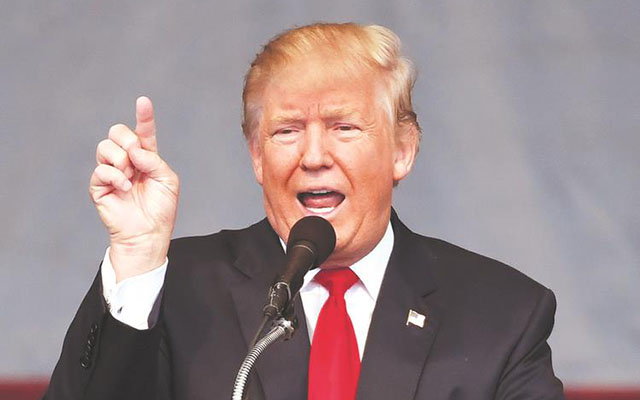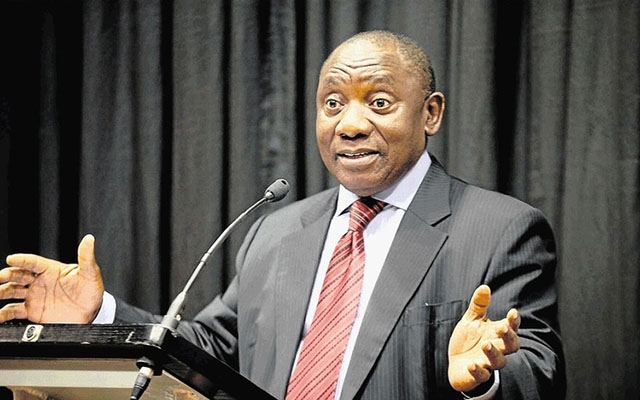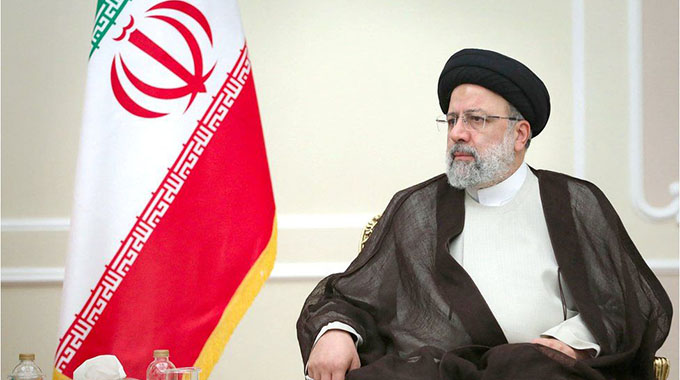Play bigger role on arms sales, Trump tells diplomats
WASHINGTON. — The Trump administration is nearing completion of a new “Buy American” plan that calls for US military attaches and diplomats to help drum up billions of dollars more in business overseas for the American weapons industry, going beyond the assistance they currently provide, US officials said.
President Donald Trump as early as February is expected to announce a “whole of government” effort to ease export rules on purchases by foreign countries of US — made military equipment, from fighter jets and drones to warships and artillery, according to people familiar with the plan.
Trump is seeking to fulfil a 2016 election campaign promise to create jobs in the United States by selling more goods and services abroad to bring down the US trade deficit from a six-year high of $50 billion.
The administration is also under pressure from US defence contractors facing growing competition from foreign rivals such as China and Russia. But any loosening of the restrictions on weapons sales would be in defiance of human rights and arms control advocates who said there was too great a risk of fuelling violence in regions such as the Middle East and South Asia or arms being diverted to be used in terrorist attacks.
Besides greater use of a network of military and commercial attaches already stationed at US embassies in foreign capitals, senior officials who spoke on condition of anonymity said another thrust of the plan will be to set in motion a realignment of the International Trafficking in Arms Regulations (ITAR). It is a central policy governing arms exports since 1976 and has not been fully revamped in more than three decades.
This expanded government effort on behalf of American arms makers, together with looser restrictions on weapons exports and more favourable treatment of sales to non-NATO allies and partners, could bring additional billions of dollars in deals and more jobs, a senior US official said, without providing specifics.
The strategy of having the Pentagon and the US State Department take a more active role in securing foreign arms deals could especially benefit major defence contractors such as Lockheed Martin and Boeing Co.
“We want to see those guys, the commercial and military attaches, unfettered to be salesmen for this stuff, to be promoters,” said the senior administration official, who is close to the internal deliberations and spoke on condition of anonymity.
A State Department official, asked to confirm details of the coming new policy, said the revamped approach “gives our partners a greater capacity to help share the burden of international security, benefits the defence industrial base and will provide more good jobs for American workers.”
The White House and Pentagon declined official comment. Defence industry officials and lobbyists have privately welcomed what they expect will be a more sales-friendly approach. It is unclear how deeply the diplomats and military officers overseas will delve into deal making and what guidelines will be established, said officials in the administration.
Trump, a Republican, has the legal authority to direct government embassy “security assistance officers,” both military personnel and civilians, to do more to help drive arms sales.
Administration officials see this group, which already has duties such as managing military aid overseas and providing information to foreign governments for buying US arms, as underutilized by previous presidents. One national security analyst said that easing export restrictions to allow defence contractors to reap greater profits internationally would increase the danger of top-of-the-line US weapons going to governments with poor human rights records or being used by militants.
“This administration has demonstrated from the very beginning that human rights have taken a back seat to economic concerns,” said Rachel Stohl, director of the conventional defence program at the Stimson Center in Washington. “And the short-sightedness of a new arms export policy could have serious long-term implications.”
The administration officials said human rights considerations would remain part of the formula for arms sales decisions. But they said such reviews would now afford greater weight than before to whether a deal would be good for the US economy and strengthen America’s defence industrial base, in which case red tape would be cut accordingly.
Rules to make it easier to sell US — made military drones overseas and compete against fast-growing Chinese and Israeli rivals are also expected to be in the Trump plan, officials said. Trump’s Democratic predecessor, Barack Obama, also sought to make it easier to sell to America’s most trusted allies but in a more cautious approach that his administration billed as a way to boost American business while keeping strict controls against more dangerous arms proliferation. — Reuters.









Comments